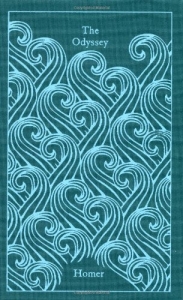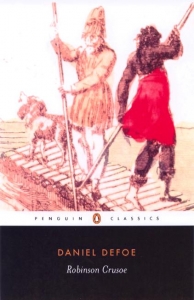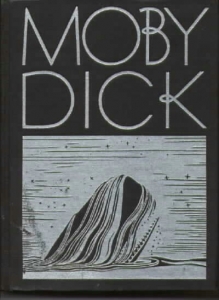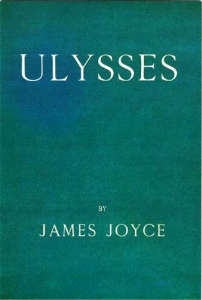It’s that time of year where people are starting to build their summer reading lists. Coming up with your list this year will probably be very similar to what you did last year. First you’ll ask your friends who actually read if they have any suggestions, then you’ll turn to Google. During your search, you will undoubtedly come across articles like “100 Novels Everyone Should Read,” “50 Must Read Classics” etc. I have strong feelings for a lot of the classics, and my English degree has lead me to acquire an impressive collection of Penguin classics, but, though it may be an unpopular opinion, not every classic belongs on everyone’s must read list.
For the most part, the classics serve a purpose, and though they may not be written in a style you’re used to, most are completely worth reading, but every once in awhile you’ll come across one that is actually painful to read. You may have started reading one or more of these titles with the best of intentions, but you have permission here and now to no longer feel bad about not being able to get into certain titles that everyone is apparently supposed to love. Here is a list of novels, that despite appearing on almost every must-read reading list, you don’t actually have to read.

Homer’s The Odyssey was originally written in ancient Greek somewhere between 750 and 650 BCE. This one is actually an epic poem, but you will still find it on most must read lists. It tells the story of Odysseus, who is believed to be dead, and his wife and son back home who are trying to deal with all the suitors trying to fill Odysseus’ place. It sounds simple enough, but if you do decide to pick this one up, remember that it was originally written in ancient Greek and that it had to be translated. It is also absolutely a poem, and it is  entirely written in dactylic hexameter.
entirely written in dactylic hexameter.
Robinson Crusoe was written by Daniel Defoe in 1719. It is a story that gets it name from its male lead who is shipwrecked more than once in the first 5 chapters, and ends up stuck on an island for a majority of the novel. Robinson Crusoe is thought of as the first English novel, and you can expect a lot of lists and repetition during the entire 28 years Crusoe spends as a castaway.

In 1851 Herman Melville had Moby Dick published, and I know you’re thinking that if Matilda could read this when she was six that you can and probably should take on this novel, but imagining a six year old reading and enjoying Moby Dick is almost laughable. Moby Dick is so well known that you probably don’t even need any sort of plot summary, so instead I will tell you that my copy is close to two inches thick and is printed on the same type of pages bibles are made from. This is also one of those books that comes with footnotes and a lot of extra help in the appendices, and you’re probably going to need it.

James Joyce’s Ulysses (1922) is no doubt a masterpiece, and an incredible form of experimental writing that is written in a stream of conscious style. The approximately 700 page book takes place on a single day, June 16, 1904, and follows Stephen Dedalus, as well as Leopold and Molly Bloom. This novel strives for realism and includes all the random thoughts and digressions that pop into Dedalus’ head. It is definitely the most difficult read on this list. You will really have to work with it, and even then, you still might not fully understand it. Note: If you are going to read Ulysses, please read The Odyssey first. Joyce based each chapter on the different chapters of The Odyssey and it is one of the more obvious references you should be noticing as you’re making your way through it.
It’s not because these classics are challenging that I don’t think they actually belong on everyone’s must read list, but because they are not really accessible reads for everyone. By all means, take a crack at them, but don’t feel bad if Moby Dick isn’t a page turner for you. These novels are broken down into bits and studied in classrooms, and there are whole courses dedicated to studying Ulysses. They are important to read in the sense that they are classics, and a lot of contemporary literature still references these classics, but it is also possible to just read about the novel to understand references, rather than torturing yourself into finishing a book you just don’t like. Odds are, if you are having trouble getting through any novel, you’re probably going to miss the subtleties anyway. Must read lists that include these novels imply that everyone enjoys a challenging read, and that everyone either is or should be interested in reading and seeing how literature has evolved. If you have a burning desire to get through all the classics, then the novels above should certainly be on your list this summer, but if you are just reading for fun, you don’t need to worry about these titles. There are plenty of other novels and classics that will satisfy you.
If you do want to tackle a few classics on your own this summer, try to forget about what you think you know about the text, and let it unfold on its own. Don’t feel bad about using the help provided in the novel, or about using the Internet to try to understand trickier passages. These books were written much differently than contemporary literature, so take your time, don’t skim, and remember that you don’t have to love it just because it’s a classic.
